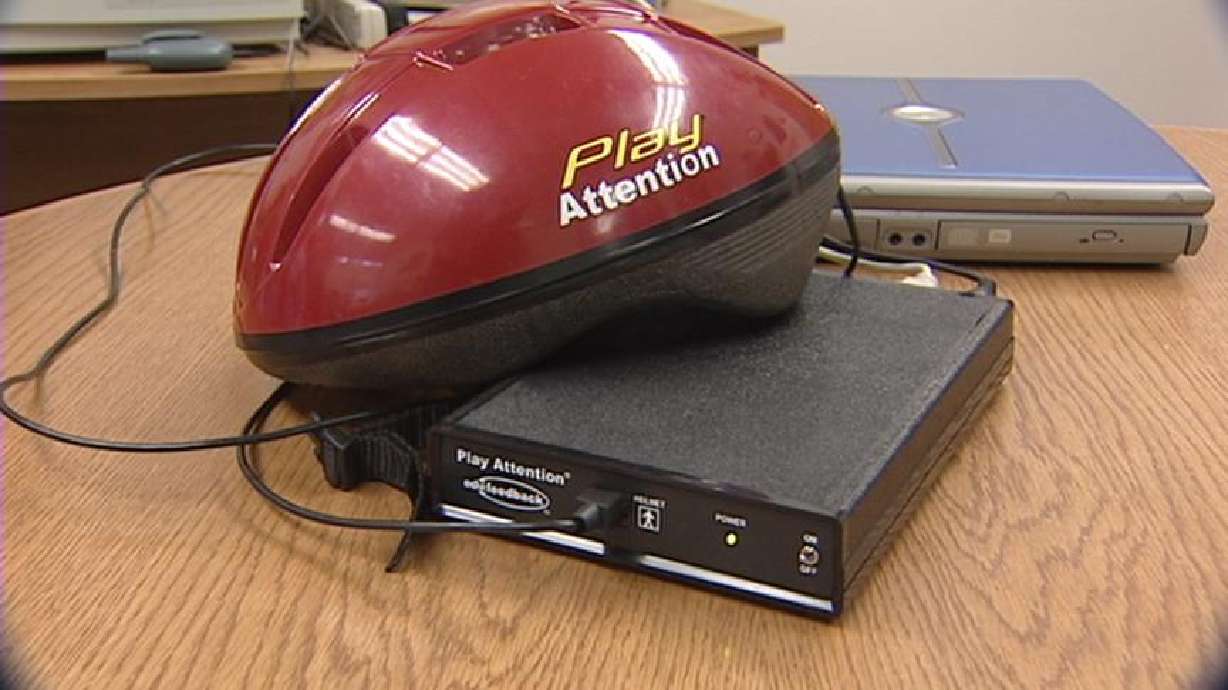Estimated read time: 2-3 minutes
This archived news story is available only for your personal, non-commercial use. Information in the story may be outdated or superseded by additional information. Reading or replaying the story in its archived form does not constitute a republication of the story.
Tonya Papanikolas ReportingComputer voice: "The rules are, speak only after the games are completed."
Sixth Grader Trevor Baggs is getting ready to play a series of computer games at school.
Trevor Baggs: "There's like, several games."
But these games aren't just for fun. They're designed to teach kids how to concentrate.

Matt Kirby, Sunset Elementary Psychologist: "They can see when they're paying attention and they can learn what that feels like."
For Trevor Baggs, that doesn't come naturally. He says in class it's hard for him to concentrate on the teacher and his lessons.
Trevor Baggs, Student: "I just don't understand and kind of give up, and I just, like, talk to other people and see if I can get the answer."
Now the school has stepped in to help. Each week Trevor puts on this helmet containing three sensors inside. The sensors read his electrical brain activity.
Matt Kirby: "Based on those brainwaves, it's able to tell whether you're in a state of concentration or attention or not."
In one game, Trevor's goal is to focus on the bird. If he does, the bird flies up. But if he loses concentration, the bird goes down.
A lot of people think they can pay attention while doing something else, but this game shows even simple acts, like tapping your pen or your feet, can bring your concentration levels down."
When Trevor taps his foot, the bird does go down. And when we start talking around him, it's even harder.
Trevor Baggs: "There's so many distractions. He's kicking me in the knee and you two are talking."
Matt Kirby: "What we're seeing in the game is that if they actually hold still and relax, they actually do better."
Trevor tries a similar game with blocks, but this time he reads while he's hooked up. If he is really concentrating on his book, the blocks move forward and start stacking. Trevor says he's starting to learn what paying attention feels like.
Trevor: "It kind of hurts."
He's joking, of course, but it is a new lesson, one his school hopes will eventually transfer to the classroom.









